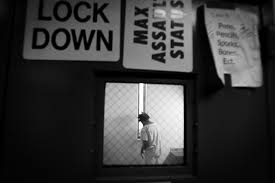Key testimony begins at 1:38:47 and lasts only five minutes.
I missed a key congressional hearing last Thursday about Rep. Tim Murphy’s Helping Families in Mental Health Crisis Act, that has become the most significant mental health legislation moving through this session of Congress. Fortunately, several readers sent me emails about an exchange between the Pennsylvania Republican, who is the only member in Congress who has been a practicing psychologist, and David Shern, the interim head of Mental Health America, the oldest organization in the country that was founded by persons with mental illnesses.
You can read Shern’s written testimony here, but the fiery exchange came near the end of the hearing after Donna Christensen, the Virgin Islands’ delegate, tossed Shern several softball questions that allowed him to criticize Murphy’s legislation.
Shern didn’t really care for anything substantial in Murphy’s bill and that attack set the stage for Murphy’s retort. Murphy didn’t mince words, especially after Shern acknowledged that he hadn’t taken time to read Murphy’s bill in its entirety before publicly skewering it.
Deservedly so, Murphy was frosted. A mental health lobbyist told me recently that Murphy is the only legislator “who really gives a damn” about fixing our mental health system. I think there are others, but his determination and passion certainly shows itself in his response to Shern.
(You can read my analysis of Rep. Murphy’s bill by clicking here. Or you can read the entire bill here.)





